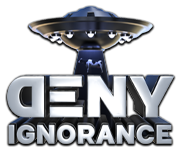02-19-2024, 08:39 AM
Cass Sunstine is a law academic and consultant to a number of organizations, but what I think is relevant here is his work "Conspiracy Theories", its about how using CT stuff can be weaponized and given the nearly 20 years since it was published, I'm sure a lot have tried to use it as a how-to manual...
The abstract:
The pdf:
https://deliverypdf.ssrn.com/delivery.ph...INDEX=TRUE
The abstract:
Quote:Many millions of people hold conspiracy theories; they believe that powerful people have worked together in order to withhold the truth about some important practice or some terrible event. A recent example is the belief, widespread in some parts of the world, that the attacks of 9/11 were carried out not by Al Qaeda, but by Israel or the United States. Those who subscribe to conspiracy theories may create serious risks, including risks of violence, and the existence of such theories raises significant challenges for policy and law. The first challenge is to understand the mechanisms by which conspiracy theories prosper; the second challenge is to understand how such theories might be undermined. Such theories typically spread as a result of identifiable cognitive blunders, operating in conjunction with informational and reputational influences. A distinctive feature of conspiracy theories is their self-sealing quality. Conspiracy theorists are not likely to be persuaded by an attempt to dispel their theories; they may even characterize that very attempt as further proof of the conspiracy. Because those who hold conspiracy theories typically suffer from a “crippled epistemology,” in accordance with which it is rational to hold such theories, the best response consists in cognitive infiltration of extremist groups. Various policy dilemmas, such as the question whether it is better for government to rebut conspiracy theories or to ignore them, are explored in this light.
The pdf:
https://deliverypdf.ssrn.com/delivery.ph...INDEX=TRUE
I was not here.






 Thanks for the link! You Rock!
Thanks for the link! You Rock!









